Discover Speaking with Joy
Speaking with Joy

Speaking with Joy
Author: Joy Marie Clarkson
Subscribed: 668Played: 23,202Subscribe
Share
© Joy Marie Clarkson ☀️
Description
120 Episodes
Reverse
A conversation with Trevor Hart about revelation, the trinity, and why God as Father is a foundational metaphor for Christian theology. This is a public episode. If you'd like to discuss this with other subscribers or get access to bonus episodes, visit joyclarkson.substack.com/subscribe
A conversation with the Reverend Canon Professor Trevor Hart about metaphor. This is a public episode. If you'd like to discuss this with other subscribers or get access to bonus episodes, visit joyclarkson.substack.com/subscribe
A conversation with Henry Jamison about towers, songwriting, metaphors and more. This is a public episode. If you'd like to discuss this with other subscribers or get access to bonus episodes, visit joyclarkson.substack.com/subscribe
We come to an end. This is a public episode. If you'd like to discuss this with other subscribers or get access to bonus episodes, visit joyclarkson.substack.com/subscribe
Renée makes her first real friend. Paloma begins to despair. This is a public episode. If you'd like to discuss this with other subscribers or get access to bonus episodes, visit joyclarkson.substack.com/subscribe
Monsieur Ozu causes a stir with the inhabitants of 7 Rue de Grenelle. Is it because he can truly see people? This is a public episode. If you'd like to discuss this with other subscribers or get access to bonus episodes, visit joyclarkson.substack.com/subscribe
Week one of a summer book club on Elegance of the Hedgehog by Muriel Barbery. This is a public episode. If you'd like to discuss this with other subscribers or get access to bonus episodes, visit joyclarkson.substack.com/subscribe
Carvings from the Southwell Minster chapter house, described in this episode.Dear Friends,I am delighted to share this final episode in my series on You are a Tree: and other Metaphors to Nourish Life, Thought, and Prayer, a rich and warm conversation with the wise and lovely Alison Milbank. Alison Milbank is Professor of Theology and Literature at the University of Nottingham as well as the priest vicar and Canon Theologian at Southwell Minster, the cathedral of Nottinghamshire. Alison is a leading scholar of religion and literature and has published many books including God and the Gothic: Religion, Romance, and Reality in the English Literary Tradition and Chesterton and Tolkien as Theologians amongst others. Alison has been a great inspiration to me in my own writing and I often teach her work! A beautiful image of Alison from a feature of her in the New Statesman!In this episode Alison and I discuss the metaphor of life as a journey, and in particular the double longings of Psalm One: to be a tree, planted, rooted, and nourished, and also to journey, to reach upward and beyond ourselves to the transcendent beyond. These two desires are captured in the operative metaphors of Psalm One: the blessed person as a traveler and as a tree. These seemingly contradictory metaphors capture much of what it is to be a human being. It reminds me of a line from a Rich Mullins song: “Nobody tells you when you get born here how much you come to love it and how you’ll never belong here.” The journey metaphor is the final metaphor I explore in the pages of You are a Tree. Alison and I discuss these twin desires through the architecture of the Chapter House in the Cathedral for which she cares, which features intricate leafs and branches alongside mysterious green men which some argue harken to a pagan past, but Alison believes to be embodiments of Psalm One. We also talked about why so many of the great works of literature are concerned with journeys, from the Odyssey to Divine Comedy to Lord of the Rings. Many of these stories feature journeys people did not want to take, and yet through which grace is experienced and the longing for home evoked— a mirror of our journeys in life. Finally, we ended with discussion of life as a gift, embodied for Alison in this painting:Chalk Cliffs on Rügen (1818) by Casper David Friedrich.Alison is a wealth of knowledge and graciousness. I hope you enjoy listening to this conversation as much as I enjoyed having it. Warmly,JoyOrder a copy of You are a Tree today! This is a public episode. If you'd like to discuss this with other subscribers or get access to bonus episodes, visit joyclarkson.substack.com/subscribe
A conversation with Christopher Tin about how music and metaphor help us express and share our deep, ineffable experiences, how different ways of speaking about love informed his compositional approach to Turandot, and some bonus chat on Aruthuriana, courtly love, and chivalry This is a public episode. If you'd like to discuss this with other subscribers or get access to bonus episodes, visit joyclarkson.substack.com/subscribe
Dear Friends,I am so excited to share this week’s episode in my series on You are a Tree: and other metaphors to nourish life, thought, and prayer. In this week’s episode, I speak with one of the scholars whose work informed my writing: Lydia Schumacher, Professor of Historical and Philosophical Theology at King’s College London. This week’s conversation can be paired with the chapter “Wisdom is (not) Light.” People sometimes ask me which chapter was my favourite to write, and upon reflection it is this chapter. It was, to borrow the metaphor, illuminating to meditate on how often our language of wisdom draws on metaphors of light: a young student is bright, a particular author is lucid, when we have an idea its like a lightbulb going on. And on the opposite end of that, we speak of people being a bit dim or of keeping people in the dark, as though ignorance or foolishness is darkness. Writing this chapter invited me to meditate on the experience of light and darkness, and also to trace the rich history of this metaphor poetry and theology.That’s why I was so delighted to be joined by Lydia Schumacher to discuss the idea of divine illumination in in Augustine and through the ages. We discussed some of the ideas in her book Divine Illumination; The History and Future of Augustine’s Theory of Knowledge, which I consulted in writing this chapter. This book looks at St Augustine’s ideas of the involvement of divine illumination in human knowledge, how it was received down the ages in philosophy and theology, and how it is relevant even today. Lydia is a deeply knowledgeable scholar but also warm and poetic in her capacity to express herself, showing the relevance of illumination in spiritual life. It was such a pleasure to speak with her. I hope you enjoy listening to the conversation as much as I enjoyed having it! As is my custom, I asked Lydia if there were any works of art she would commend to readers who wanted to meditate on the metaphor of light as wisdom. She recommended Rembrandt’s etchings —one of which is on the cover of her book! I hadn’t spent much time with Rembrandt’s etchings, but Lydia noted how beautifully they use light and darkness to engage the viewers. I particularly loved the one below, The Student at a Table by Candlelight (1642). It reminds me of Seamus Heaney’s wonderful translation of “Pangur Ban,” an old Irish poem about a cat and a scholar hard at their various work (catching mice and finding wisdom):Practice every day has made
Pangur perfect in his trade;
I get wisdom day and night
Turning darkness into lightOne final artistic recommendation (and a bit self serving) is this choral setting of a collect from Compline by my brother Joel. Self serving because we actually recorded it together (all the parts!) during the covid lockdown. I am not a natural soprano, but it was really lovely to get to create this together. (Though, of course, 95% of the credit goes to Joel who composed the thing!). Here are the words:Lighten our darkness, we beseech thee, O Lord;and by thy great mercy defend us from all perils and dangers of this night;for the love of thy only Son, our Savior Jesus Christ.Amen.Well, friends! That’s all for today. I hope you enjoy the conversation with Professor Schumacher, the art, and that you will notice the light in your life today.Warmly,JoyOrder your copy of You are a Tree today! This is a public episode. If you'd like to discuss this with other subscribers or get access to bonus episodes, visit joyclarkson.substack.com/subscribe
A conversation with Jennifer Banks about natality. This is a public episode. If you'd like to discuss this with other subscribers or get access to bonus episodes, visit joyclarkson.substack.com/subscribe
A conversation with Brian Zahnd about The Wood Between the Worlds: a poetic theology of the cross. This is a public episode. If you'd like to discuss this with other subscribers or get access to bonus episodes, visit joyclarkson.substack.com/subscribe
On this week’s episode Joy talks with author David Zahl about the inevitable heaviness of life, whether or not trauma dumping is a thing, the refreshing power of humour to remind us we’re not alone, and the efficacy of Thomas Aquinas’ remedies for sorrow (spoiler: tears, the truth, friends, and baths). This is a public episode. If you'd like to discuss this with other subscribers or get access to bonus episodes, visit joyclarkson.substack.com/subscribe
Dear Friends,Today I share the first interview in my series on the metaphors You are a Tree and other metaphors to nourish life, thought, and prayer. I speak with Malcolm Guite. Malcolm Guite is a poet, priest, and rock and roller. He writes and speaks about the intersection of religion and the arts, with a particular interest in the Inklings and Samuel Taylor Coleridge. He has written many collections of poetry and advocates for the importance of the imagination in the spiritual life.We covered a lot of ground in our conversation. We talked about why the metaphor for people as trees is fitting, how the natural world reflects the spiritual, the metaphorical nature of thought, and how a Celtic saint really became a tree. In the second half we discuss two poems: one by Malcolm and one by Seamus Heaney. Having Malcolm read the aloud was a real treat. Below, I attach both of the poems…St Kevin and the BlackbirdBy Seamus HeaneyAnd then there was St Kevin and the blackbird.The saint is kneeling, arms stretched out, insideHis cell, but the cell is narrow, soOne turned-up palm is out the window, stiffAs a crossbeam, when a blackbird landsAnd lays in it and settles down to nest.Kevin feels the warm eggs, the small breast, the tuckedNeat head and claws and, finding himself linkedInto the network of eternal life,Is moved to pity: now he must hold his handLike a branch out in the sun and rain for weeksUntil the young are hatched and fledged and flown.*And since the whole thing's imagined anyhow,Imagine being Kevin. Which is he?Self-forgetful or in agony all the timeFrom the neck on out down through his hurting forearms?Are his fingers sleeping? Does he still feel his knees?Or has the shut-eyed blank of underearthCrept up through him? Is there distance in his head?Alone and mirrored clear in love's deep river,'To labour and not to seek reward,' he prays,A prayer his body makes entirelyFor he has forgotten self, forgotten birdAnd on the riverbank forgotten the river's name.Here is Seamus Heaney himself reading the poem aloud!I am the Vine, a sonnetBy Malcolm GuiteHow might it feel to be part of the vine?Not just to see the vineyard from afarOr even pluck the clusters, press the wine,But to be grafted in, to feel the stirOf inward sap that rises from our root,Himself deep planted in the ground of Love,To feel a leaf unfold a tender shoot,As tendrils curled unfurl, as branches giveA little to the swelling of the grape,In gradual perfection, round and full,To bear within oneself the joy and hopeOf God’s good vintage, till it’s ripe and whole.What might it mean to bide and to abideIn such rich love as makes the poor heart glad?I attached the video version of our interview to the top of this email in case any of you prefer YouTube to podcasts, but also so you could get a sneak peak of Malcolm’s wonderful study. In fact, Malcolm has rather wonderful YouTube channel himself called a Spell in the Library. In each video Malcolm shows you around his study, reads poems and passages from books, and smokes one of his (many!) pipes. It is delightful and I highly recommend it. You can start here:That’s all for today, friend’s! I look forward to sharing next week’s episode with you from Dave Zahl on Sadness is Heavy. I’ve decided to release the episodes out of the order they appear in the book to accommodate schedule constraints for the interviewees. Each of these conversations have been so enriching and enjoyable. I hope you enjoy I hope you enjoy listening to these conversations as much as I enjoyed having them. Till next week!Warmly,JoyOrder your copy of You are a Tree today! This is a public episode. If you'd like to discuss this with other subscribers or get access to bonus episodes, visit joyclarkson.substack.com/subscribe
Dear Friends,I’m very pleased indeed to share that Speaking with Joy is back! In this introductory episode I share what I’ve been up to for the past year, read an excerpt of You are a Tree, and share a bit about the series I’ve recorded for the next few months! Listen in! I hope you enjoy. :) This is a public episode. If you'd like to discuss this with other subscribers or get access to bonus episodes, visit joyclarkson.substack.com/subscribe
Joy and Elena talk about morning pages, artist dates, and why they're doing the Artist's Way. This is a public episode. If you'd like to discuss this with other subscribers or get access to bonus episodes, visit joyclarkson.substack.com/subscribe
On the 20th of July, 1854 Marian Evans set sail with George Lewes, a man who was not her husband and who was, indeed, a married man with three children. She understood this trip to be her honeymoon, and after it, with growing confidence, she began to call her self “Mrs. Lewes.” Their relationship scandalised the Victorian social circles in which they moved, resulting in their social isolation for many years. They were considered to be adulterers, radicals supporting an amoral free love philosophy. But to Marian, it was a true marriage, a profound oneness which did not contract but expand the borders of her experience and intellect. A double life, not in the sense of a secret life, hidden life but of an enlargement of life. It would form the fertile ground from which some of the most tender, profound, and philosophical works of English literature would spring. That Marian Evans, or as we know her George Eliot, became “Mrs Lewes” was central to the inspiration for books now much beloved in English literature: Silas Marner, Daniel Deronda, and perhaps her best know Middlemarch. Though their marriage may have seemed scandalous and impulsive to this around them, for Eliot it was a consciously chosen, morally considered choice, one which she explained in letters to friends in tones alternatively persuasive and pleading. The story was more complicated than it looked on the outside; George Lewes’ wife Agnes was having an ongoing affair with Thornton Hunt, which produced four illegitimate children, but for various legal and financial reasons Lewes could not divorce her. Because of this Eliot considered Lewes free, and lacking the ability to pursue a legal marriage lived in a spiritual one. Their partnership was incredibly fruitful, Lewes coming alongside her as something like an agent and a manager, encouraging her to publish and taking care of the business that entailed. The ambiguity of relationship to the public world Eliot to consider the true nature of marriage— was it a legal arrangement? A religious institution? A spiritual bond? Far from flippancy, she held marriage in high regard. ‘About marriages one can only rejoice with trembling’ wrote Eliot to one of her friends. A philosopher to be reckoned with (having translated Strauss, Feuerbach, and Spinoza), many of Eliot’s novels explore marriage not merely as a sociological phenomenon or a religious institution but as an object of philosophical inquiry. It is the theme of marriage as a philosophical question which Clare Carlisle picks up in her new book The Marriage Question: George Eliot’s Double Life. She writes:“There is something dazzling about marriage — that leap into the open-endedness of another human being. It is difficult to look directly at it, difficult to think that thought. A philosopher usually swoops on such things like a magpie: Look! a shifting, shimmering question, all indeterminacy and iridescence. Don’t you just want to snatch it up, take it home, and sit on it for a long time?” (Clare Carlisle, The Marriage Questions).I was delighted to get to speak with Clare about her book, George Eliot, and the marriage question as it presents itself in our contemporary world. It is an interesting question to consider in a time when marriage rates are near the lowest they have ever been in the western world. In this world, we might ask whether the marriage question is one which needs to be asked, or one which most people are simply avoiding. I loved Clare’s framing of the marriage question as a philosophical one, and one which we will all ask ourselves at one point or another, even if we never get married. Even if we chose not to marry, or (like Eliot in her younger years) feel that marriage will never offer itself to us as a real possibility, our lives are profoundly shaped by the marriages of our parents, our friends. We will all ask ourselves the marriage question at one point or another.We talked about all this and more in the podcast attached to this email (which you can also find on iTunes, though Spotify is giving me grief these days). I do hope you’ll enjoy the conversation I had with Clare, and that you will pick up a copy of her new book. The book and our conversation gave me much to consider and much to enjoy. I hope both will do the same for you.Wishing you a lovely week,JoyClare Carlisle is Professor of Philosophy at King’s College London, and the author of Spinoza’s Religion, On Habit, and Philosopher of the Heart: The Restless Life of Søren Kierkegaard. Clare is also the editor of Spinoza’s Ethics, translated by George Eliot. She grew up in Manchester, studied philosophy and theology at Trinity College, University of Cambridge, and now lives in London.p.s. I saw this misidentified George Eliot portrait in a window a few weeks ago, which gave me a chuckle. Apparently all female authors are one in the same…The shop owner seems to have eventually figured it out… This is a public episode. If you'd like to discuss this with other subscribers or get access to bonus episodes, visit joyclarkson.substack.com/subscribe
Dear Friends,Good morning and happy Saturday! Today I have a little treat for you: a conversation I recorded with my brother Nathan Clarkson about his recently released book Finding God in Hollywood: Discovering the Divine in Films, Movie Stars, and Stories. Myself, Nathan, and Joel have all spent significant periods of our lives in Los Angeles. Ask any of us and you’d hear something similar: it can be an arid place, a dry and spiritually challenging landscape. In many Christian circles there’s an idea that Hollywood is “godless”, a place of egos and propaganda and materialism. And there is much of that. But, as Nathan argues in his book, the act of story telling, of weaving together patterns and imagery in an effort to find some semblance of meaning is something close to the heart of the search for God. So, Nathan tells stories of finding God in Hollywood in unexpected places.The Bible itself is primarily narrative— yes, there are laws, pastoral exhortations, and theological ideas expounded, but the great majority of it is a story. Adam and Even in the garden, Abraham searching for a home, Joseph and his jealous brothers, the miraculous Exodus overshadowed by bloody signs and wonders. Human beings are drawn to narrative, we feed on myths (religious and national) to make sense of our identity, our place in the world, our hunger for meaning. This is all profound, but also quotidian. When we meet a new person and get past the hello’s and where do you work, one of the subjects we tend to stray into is stories: what books do you like? What movies? What TV are you watching?In America, some Christians have tried to capitalise on this by creating “Christian Films” which, if you’re a snob like me, tend to be pretty uncomplying unless you are already a part of the in crowd that they’re made for. What I am about to say may seem harsh; I am glad for every good effect a film might have, and I do believe there are some good “Christian Films” (The Chosen, for instance seems to be universally loved amongst both my Christian and non Christian friends). But many of these films amount to nothing more than propaganda; they are good because they underscore an idea of conviction already held with emotional manipulation. And in this way, they tend not to be very good films. They are not created to be beautiful or interesting, but to convince and evoke emotion.This is one of the secondary ideas Nathan and I talked about: trusting that there is something worth while in creating an excellent work of art, whose aim is beauty, artistry, and craft, not merely communicating a message. This is something Nathan is passionate about is trying to do in his own artistry. For instance in this film he wrote and produced and released earlier this year:Our conversation is a little tidbit, not long, but I hope you enjoy it on this fine Saturday morning. And I’d love to know what movies you think are excellent works of art that help you find God, and dwell on what is meaning and spiritual. This is a public episode. If you'd like to discuss this with other subscribers or get access to bonus episodes, visit joyclarkson.substack.com/subscribe
Last summer, I found my poem for the year. I read it to whoever would listen. Eventually I recited it to whoever would listen, because I’d read it so many times that it had become a part of the wallpaper of my mind. People tended to have one of two response: they either laughed and ask for the name of the poem, or looked at me with a mild concern in their eyes and ask something like “are you ok?”Here’s the poem:Master of beauty, craftsman of the snowflake,inimitable contriver,endower of Earth so gorgeous & different from the boring Moon,thank you for such as it is my gift.I have made up a morning prayer to youcontaining with precision everything that most matters.‘According to Thy will’ the thing begins.It took me off & on two days. It does not aim at eloquence.You have come to my rescue again & againin my impassable, sometimes despairing years.You have allowed my brilliant friends to destroy themselvesand I am still here, severely damaged, but functioning.Unknowable, as I am unknown to my guinea pigs:how can I ‘love’ you?I only as far as gratitude & aweconfidently & absolutely go.I have no idea whether we live again.It doesn’t seem likelyfrom either the scientific or the philosophical point of viewbut certainly all things are possible to you,and I believe as fixedly in the Resurrection-appearances to Peter & to Paulas I believe I sit in this blue chair.Only that may have been a special caseto establish their initiatory faith.Whatever your end may be, accept my amazement.May I stand until death forever at attentionfor any your least instruction or enlightenment.I even feel sure you will assist me again, Master of insight & beauty.(John Berryman, “Eleven Addresses to the Lord”)The line that often seems to get people (the line that got me) is this one: “You have allowed my brilliant friends to destroy themselves / and I am still here, severely damaged, but functioning.” It had a Rorschach quality to it. Some laughed and nodded along, knowing the feeling. Some winced at the idea of being “severely damaged.” Such a confession shouldn’t be foreign to Christians. The Book of Common Prayer invites us to confess: “We have left undone those things which we ought to have done; and we have done those things we ought not to have done; and there is no health in us. But thou, O Lord, have mercy upon us, miserable offenders.”I think we are uneasy about thinking of ourselves as a offenders, damaged, needy. Isn’t it sort of… psychologically unhealthy? a hangover from a harsher, less enlightened past? Doesn’t it make us seem rather harsh? In my experience, it is quite the opposite. If we know ourselves to be a fumbling and failing and faltering people, scarred by the wear and tear of ordinary dysfunction and original sin, then our faults, while still faults, can be regarded as the unfortunate outcome of a fallen world and a fallen nature. But if we think that really, we can be perfectly good and choose not to… well, then, we really are monsters. This the idea that David Zahl explores in his new book Low Anthropology: the Unlikely Key to a Gracious View of Others (and Yourself) (2022). I’ve listened to Dave’s podcast (with his friends Sarah Condon and RJ Heijman) for the last year or so, and always find it very wholesome and encouraging and interesting. After hearing them talk about it on the podcast, I picked up a copy of Dave’s book and enjoyed what I read; a humorous, humane volume, about what we can (and can’t) expect of human beings, and how, actually, having a lower expectation of our the human capacity to be good helps us have compassion, grow, and live more honestly. His book also has one of the best covers I’ve seen in a while:On this week’s podcast episode, I chat with Dave about his book, and about how adopting a low anthropology might help us regard ourselves and our neighbours with a little more mercy, patience, and gentleness. But it also reminds us that we need God. And with this need there is great hope, excitement even. A possibility beyond ourselves, a fulness we could never fill. That is a good place to start. May I stand until death forever at attentionfor any your least instruction or enlightenment.I even feel sure you will assist me again, Master of insight & beauty. This is a public episode. If you'd like to discuss this with other subscribers or get access to bonus episodes, visit joyclarkson.substack.com/subscribe
Dear Friends,Merry Advent! I can’t believe how quickly the days are passing us by— Christmas approaching with alarming speed. I’ve been traveling this month, and there has been something beautiful about seeing cheer spread from city to city. Now that I’m back, I’m rejoicing preparing for Christmas—picking presents for each sibling, niece, nephew, beloved. I think so much of love is preparation. It makes me think of this poem that I love:Those Winter Sundaysby Robert HaydenSundays too my father got up earlyand put his clothes on in the blueblack cold,then with cracked hands that achedfrom labor in the weekday weather made banked fires blaze. No one ever thanked him.I’d wake and hear the cold splintering, breaking. When the rooms were warm, he’d call, and slowly I would rise and dress, fearing the chronic angers of that house,Speaking indifferently to him, who had driven out the coldand polished my good shoes as well.What did I know, what did I know of love’s austere and lonely offices?In this week’s podcast, I reflect on preparation for Christmas, and hope to help yours come along smoothly with a few gift ideas for the little and large bookish people in your life. I hope you’ll listen along and enjoy the links below:A Book, Too, Can Be a Star by Charlotte Jones Voiklis and Jennifer AdamsBuy A Book, Too, Can Be a StarWhen Madeleine L'Engle was very small, she often found herself awake at night, marveling at the stars. They guided her throughout her life, making her feel part of a big and exciting world, even when she felt alone. They made her want to ask big questions―Why are we here? What is my place in the universe?―and let her imagination take flight. Books, too, were like stars―asking questions and proposing answers. Books kept Madeleine company, and soon, she began to write and share her own. But would other people see the wonder she found in the world? Written by Madeleine's granddaughter Charlotte Jones Voiklis and bestselling picture-book author Jennifer Adams, A Book, Too, Can Be a Star follows the life of one of the world's greatest creators―and gives children encouragement to lead a creative, inquisitive life.Sister Seraphina Mysteries by Haley StewartBuy The Curious Christmas TrailIt’s Christmas Eve, and under the floorboards of G. K. Chesterton’s home, curious clues lie hidden… Sister Seraphina and the other Sisters of Our Lady Star of the Sea are busy with preparations for the Christmas play and long-awaited feast. That’s enough to be getting on with! But where is Sister Dymphna? The elderly nun is nowhere to be found in Saint Wulfhilda’s Abbey. Outside it’s growing dark, and the snow is falling. The brave search party will need all their wits to avoid danger and follow the trail—wherever it leads!The Clubhouse by Nathan and Joy (me!) ClarksonBuy The ClubhouseWhen you were young, what did you dream of doing? Riding high atop a dragon? Hurtling through space on a rocket ship? Unearthing an island treasure? Sailing on a shimmering sea? In our book, we invite you and your kids to hang out in the clubhouse, a place of boundless creativity where the only limit is your own imagination. Follow along with a boy and girl (based on us) who turn their play structure into an airplane, a submarine, a cave, a castle, and so much more! Dedicated to the simple, oft-forgotten pleasures of imaginative play will awake wonder in your children and inspire them to dream up their own big adventures!The music for this week is taking from my brother Joel’s album Midwinter Carols— I highly suggest putting it on as a soundtrack to your Christmas preparations! A gift recommendation for the grown up book lovers in your life…Poster Prose by Madeline Larson KalembachShop Poster Prose!"Poster Prose exists to commemorate literature through the medium of visual art. The artist, Madeline’s, love for literature can be seen in every print. After encountering an inspiring work, Madeline creates an image depicting the book’s central themes. Created by a reader for readers, these pieces offer unique reminders of the worlds and characters created by some of our favorite authors in the books we love."And I must put a little plug in for my own book: consider buying a copy or three of my book Aggressively Happy for the friends in your life! I like to think that in the bleak midwinter (which is, actually, the time of the year I wrote the book) this book might bring a bit of cheer and strength to us all. Buy Aggressively HappyAll for now, friends! I wish you a beautiful advent.Prepare well.With love,Joy This is a public episode. If you'd like to discuss this with other subscribers or get access to bonus episodes, visit joyclarkson.substack.com/subscribe




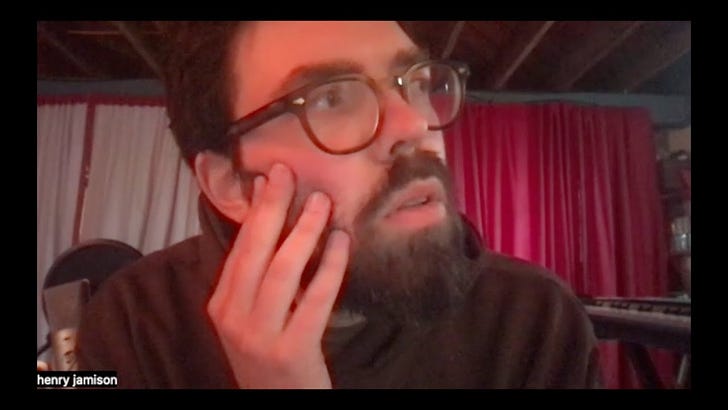





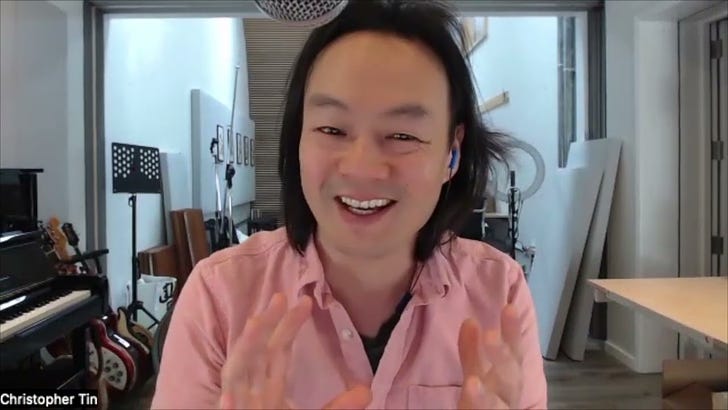

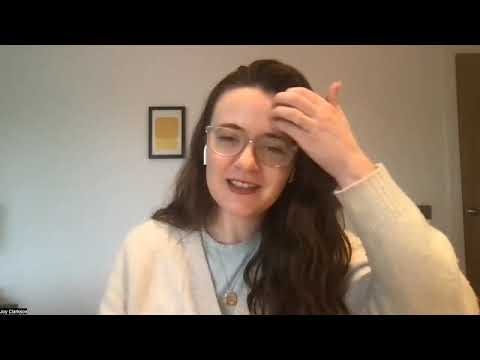
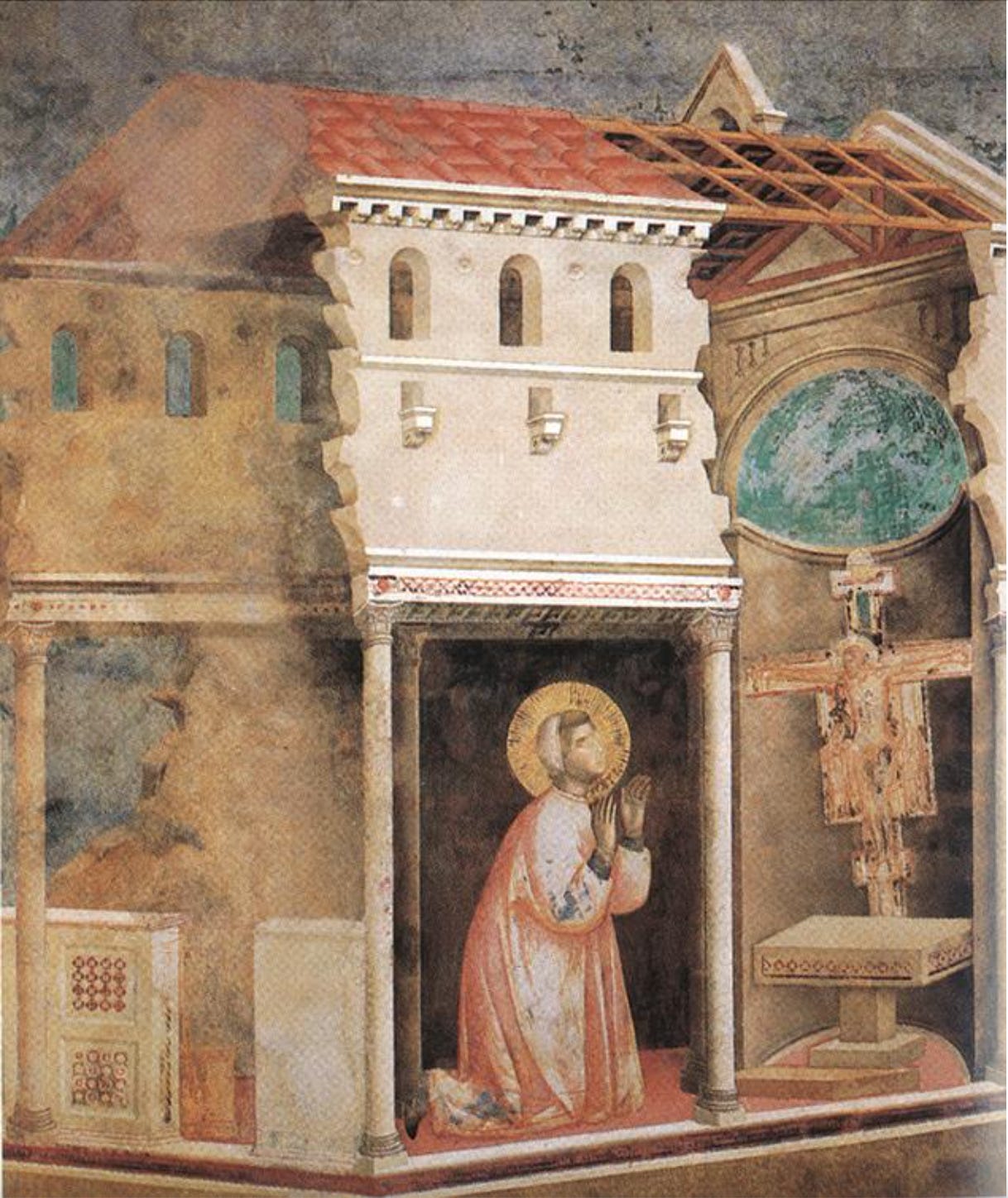
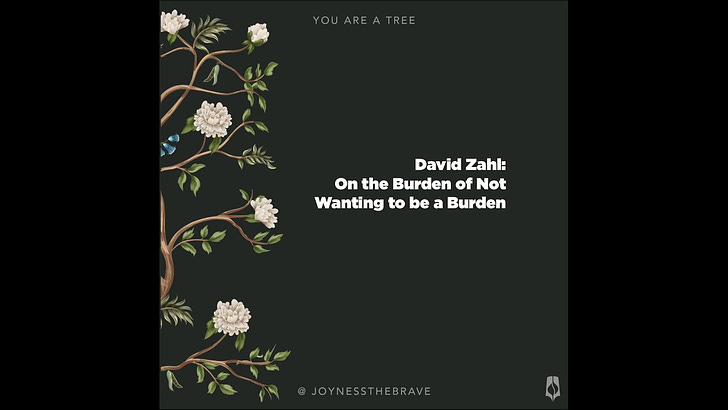
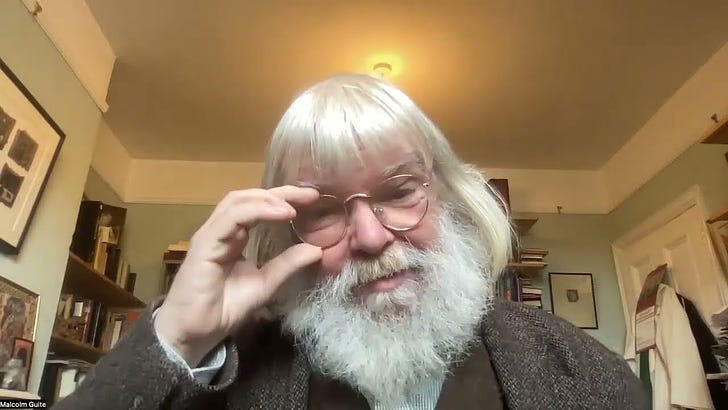


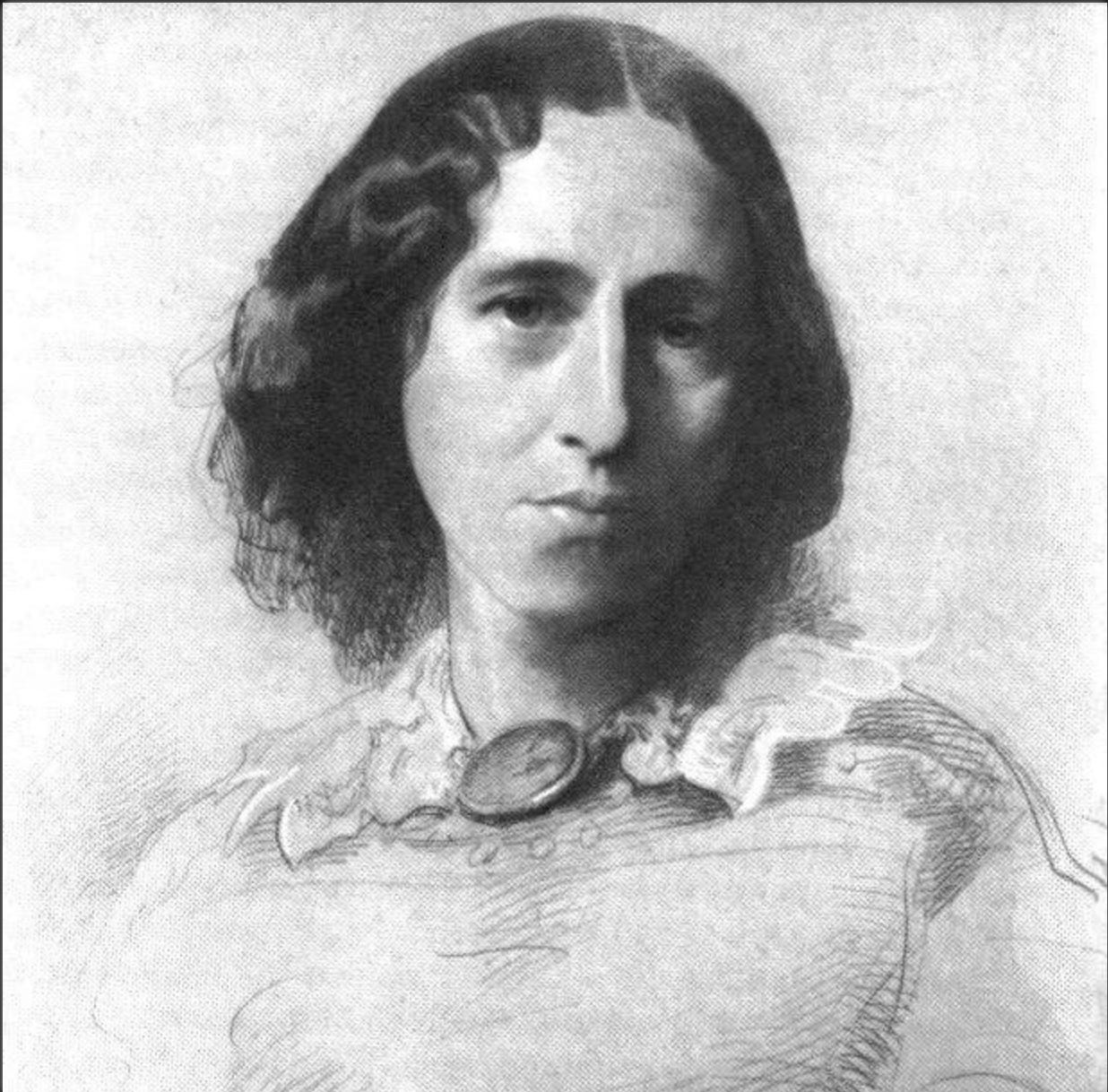
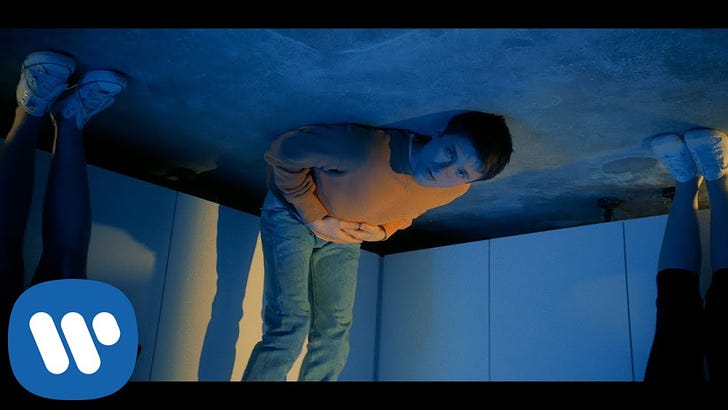

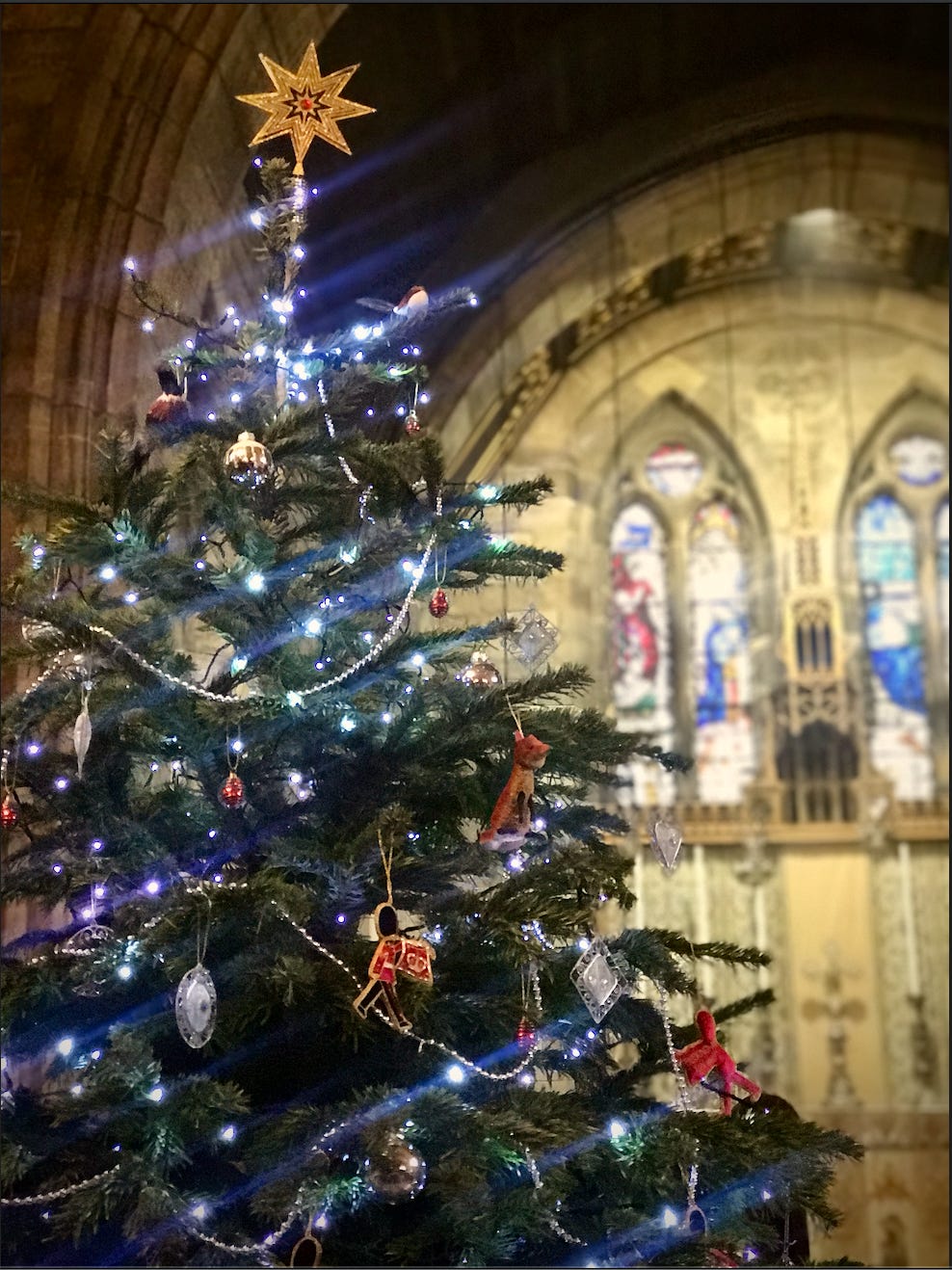



I love listening to your insight on A Wrinkle in a Time ❤️ Its a book that I actually didn't enjoy as a kid, but now, on this side of Christ, I understand it more and appreciate it more. I have maybe a thought about Calvin. I automatically thought of John Calvin, a reformer in the 1500s (same time as Martin Luther, but in Geneva, Switzerland). I can totally see Calvin (the character) named after him because he (the man) sought after truth in a time when that meant possible death. So I just assumed she named him after John Calvin!
I loved your perspective on this film. Thank you for this thoughtful and thought-provoking episode.